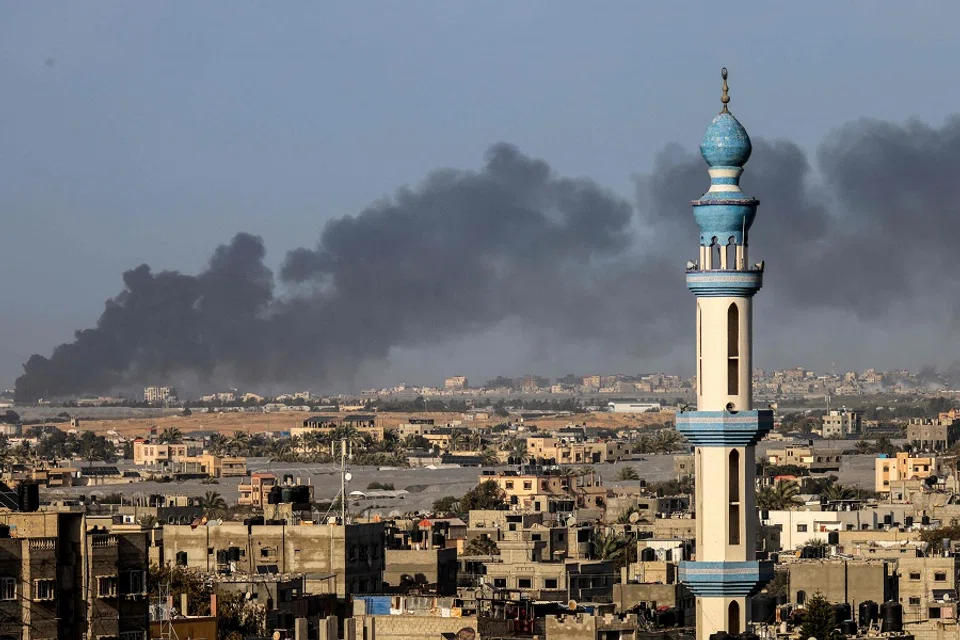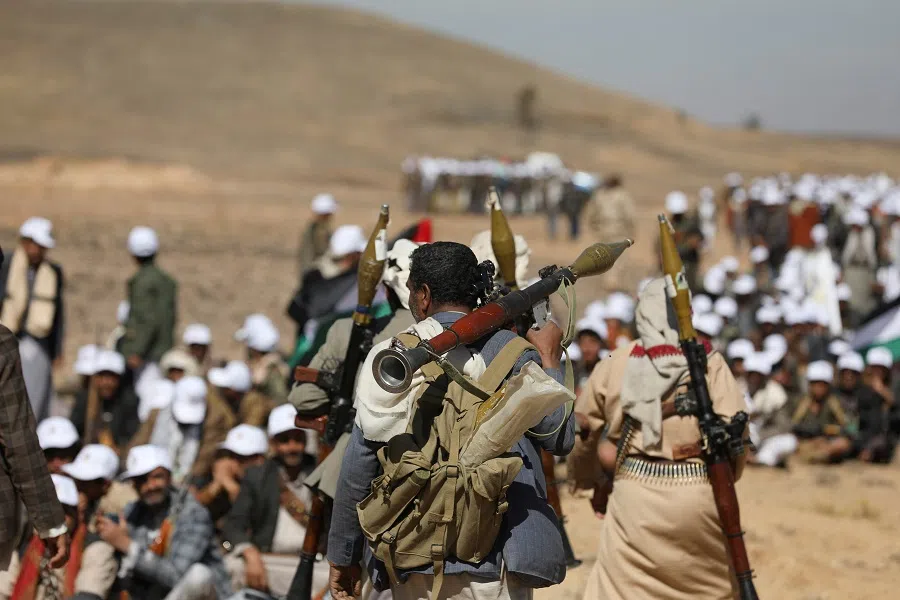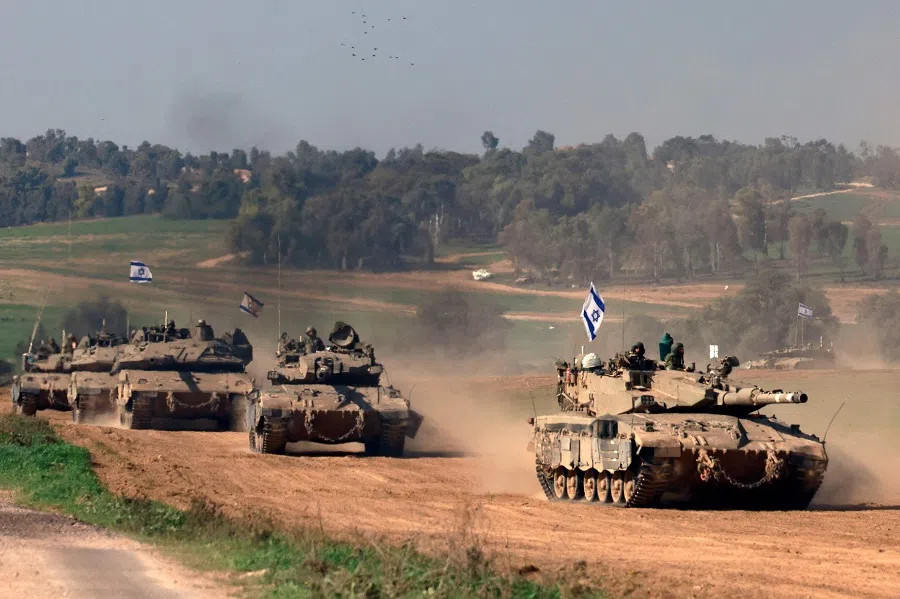Chinese academic: The Middle East today is not in a worse state
Academic Fan Hongda argues that viewed against its modern history filled with contradictions and struggles, the Middle East is not in a worse state today, despite the recent rise in military operations in a short span of time.

Since Hamas launched a cross-border attack on Israel on 7 October 2023 and another round of the Gaza-Israel war broke out, several countries and forces have used force in the Middle East.
Hezbollah in Lebanon and the Houthis in Yemen launched attacks on Israel; the US and British coalition launched air strikes against the Houthi armed forces, which severely affected shipping in the Red Sea; Israel bombed Syrian targets and killed several members of Iran's Islamic Revolutionary Guard Corps; Iran attacked some targets in Iraq, Syria and Pakistan in the name of counter-terrorism, and Pakistan also attacked targets in Iran for the same reason; Jordan carried out air strikes on targets in Syria for fighting drug traffickers.
With so many military operations taking place in a short period of time, it is natural that the Middle East has become the focus of media and public attention in various countries, and is once again widely regarded as a conflict-dominated region. Against this background, it seems as if the wave of Middle Eastern reconciliation, which was much talked about before 7 October 2023 and viewed optimistically by many Middle East experts, never existed.
But compared with its modern history, which is full of contradictions and struggles, the Middle East today is not in a worse state.
Merry-go-round of recent Middle East conflicts
There are indeed many conflicts in the Middle East at present. But compared with its modern history, which is full of contradictions and struggles, the Middle East today is not in a worse state.
The ongoing war in Gaza is the fundamental reason why Hezbollah and the Houthis launched attacks on Israel, and is also a key reason for the crisis in the Red Sea. Israel's strikes in Syria are directly related to Iran's large sway over the country, and Israel fears that Iran could endanger it by way of Syria.
Iran's attacks on the "Israeli Mossad headquarters" in northern Iraq and the "Islamic State" in Syria were responses and retaliations to the previous terrorist attacks in Kerman, Iran, that Tehran believed were related to Israel. Attacks on US targets in Iraq and Syria are related to Washington's Middle East policy. The presence of US military forces in the Middle East has encountered growing opposition from local people.

The aforementioned tensions stem from various factors, including the unresolved Palestinian issue, the strained relations between Iran and Israel, and the ongoing intervention of external powers in the internal affairs of the Middle East. These three factors have been the main causes of instability in the Middle East over the past few decades.
Counter-terrorism common goal of Iran and Pakistan
As for the mutual attacks between Iran and Pakistan, the two countries have reconciled without third-party mediation. Counter-terrorism is a common need of Iran and Pakistan. The latest episode will not have a serious impact on bilateral relations.
In addition, at a time when the drug problem has been becoming an increasingly serious threat to many countries in the Middle East, Jordan recently launched military strikes against drug smuggling targets in Syria. In fact, similar attacks have been carried out several times. Moreover, combating the drug trade was one of the key issues negotiated when Syria returned to the Arab League last year.
It seems that although the number of countries involved in recent attacks in the Middle East has increased, the Middle East as a region has not been significantly affected by this.
So far, the Gaza-Israel war has indeed had a significant overall impact on both warring parties. Because Hezbollah and the Houthi armed forces are non-state actors, their mutual attacks with Israel have not worsened to the level of confrontation between Israel and Lebanon and Yemen. Israel's attacks on Syria; Iran's attacks on Iraq, Syria, and Pakistan; Pakistan's attacks on Iran; and Jordan's attacks on Syria all occurred in very specific locations. The same goes for attacks on US targets in Iraq and Syria.
It seems that although the number of countries involved in recent attacks in the Middle East has increased, the Middle East as a region has not been significantly affected by this. Moreover, the attacks themselves are viewed differently even by the populace of the countries being attacked, largely because of sensitive civil-government/regime relations.
Despite this, the current situation in the Middle East still has some impact on China. China needs to respond carefully.
Hard for China to play central role in Palestinian question
It is very regrettable that since the Gaza-Israel war in 2021, Israel's attitude towards China has become increasingly negative. Since the new round of Palestinian-Israeli conflict escalated on 7 October 2023, Israel has even been critical of China. Although China has expressed its willingness to mediate the conflict between Palestine and Israel, I pessimistically believe that it will be difficult for China to play a central or even important role in resolving the Palestinian question in the future.

China must pay attention to the differences in the manifestations of the Palestinian issue at different times and respond to the Palestinian-Israeli conflict in a more effective way. For example, the sudden escalation of the Palestinian-Israeli conflict on 7 October 2023 is significantly different from the previous outbreaks of conflicts between the two parties, and of course, would require a more targeted response.
The attack launched by the Houthi armed forces in the Red Sea, and the subsequent military strikes by the US and Britain on Yemen, have worsened the already precarious situation for Red Sea shipping. As a major trading country in the world, China has also suffered greatly. China must work with the international community to actively safeguard shipping safety in the Red Sea in a manner consistent with international law.
... despite some recent conflicts in the Middle East, the factors that supported the wave of reconciliation in the Middle East in previous years still exist.
China does not want to see conflicts between some friendly countries such as Iran, Iraq, Syria, Pakistan and Jordan. From the perspective of China's interests, conflicts between these countries will affect the Belt and Road Initiative. Iran and Pakistan are both members of the Shanghai Cooperation Organisation (SCO) which China values very much. China certainly does not want to see serious conflicts among the SCO member states.
Moreover, considering that current international relations, especially the relations between world powers, are very complicated, serious conflicts between friendly countries are obviously not conducive to China. Therefore, when Iran and Pakistan had conflicts, China immediately expressed its willingness to provide mediation if both parties needed it. Fortunately, the conflicts between these countries have not escalated, and some have subsided.
In fact, despite some recent conflicts in the Middle East, the factors that supported the wave of reconciliation in the Middle East in previous years still exist. For example, the tragic experiences brought about by historical conflicts have made Middle Eastern countries increasingly eager for peace, leaders of Middle Eastern countries are paying more and more attention to national development, and the strategic autonomy of Middle Eastern countries is constantly increasing, etc.
I think this is the fundamental reason why although the Gaza-Israel war has lasted for more than a hundred days, no other Middle Eastern state actors have been involved in it so far. China should follow this trend in the Middle East, continue to promote peace there, and seek development together with Middle Eastern countries.





